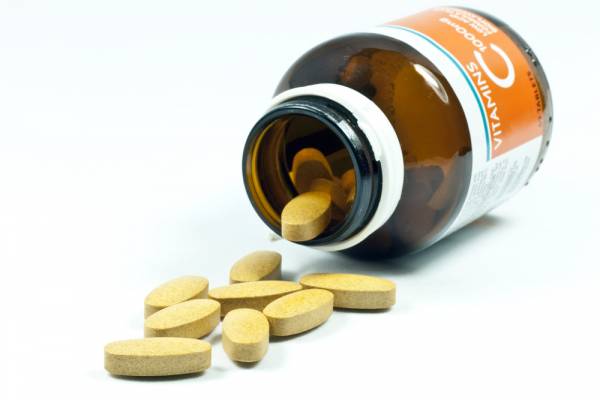If you’ve been following along, I have been exploring holistic therapies to help correct my cracked-out adrenal glands. Yes, “cracked-out” is a clinical term. My adrenals make far too much of the go-go get ‘em neurotransmitters norepinephrine and epinephrine. My cortisol levels are beginning to become deranged as well. The end result is a very anxious, nervous, but tired moi. I explored massage and acupuncture treatments in previous articles. Today, I want to discuss supplements.
There are a ton of adrenal supplements out there. You can get everything from desiccated bovine adrenal gland to blends of exotic herbs you probably never heard of before. Most people get overwhelmed with the number of supplements that are marketed for adrenal health, and depending on the person, quite a few of these supplements might actually make some symptoms worse. So, my focus today will be on the top three supplements that can help nearly everyone, including myself, heal or maintain their adrenal health.
Why three? Because more than that and I start forgetting the names and why I’m taking them. I think most of you would agree that when your supplement regimen starts to become too complicated or expensive, you just don’t stick with it. So, in an effort to simplify things I found what I consider the top three that should be in most people’s medicine cabinet.
#1. Magnesium
Oh, I know, I know. That’s boring right? Well, wait until you hear about all the wonderful things magnesium can do for your adrenal glands. First, it’s been shown that magnesium deficiency increases anxiety and depression. Basically, when you are magnesium deficient the set point at which your adrenals kick in and start producing the fight-or flight hormones is lower. So, even relatively minor things can set you off causing cortisol, epinephrine, and norepinephrine to soar.
It’s also believed that stress can cause you to lose more magnesium through the urine than is normal. So it can become a compounding problem. You get stressed out, lose magnesium, then you are even more at risk to overreact, trigger the stress response again, and lose even more magnesium.
When magnesium levels are low, every cell becomes hyper-excitable. Magnesium and calcium work together to regulate electrical impulses within cells. Calcium enters the cells, triggering an electrical impulse, and is then escorted out of the cell by magnesium. However, when magnesium levels are too low, calcium enters the cell and hangs out for a while causing cellular dysfunction, hyper-excitability, and prolonged contraction of muscles. Have you ever gotten a muscle twitch and wondered what in the heck was going on? Or maybe you’ve gotten in bed at night only to feel your heart pounding inappropriately? You are probably stressed, not sleeping, and deficient in magnesium.
The recommended dosing for magnesium is said to be about 3-10 mg per pound of body weight. However, this is going to vary greatly depending on each individual’s needs. The rule of thumb is to increase your dose slowly and back off once you start experiencing loose stools. Also, look for magnesium citrate or magnesium malate, especially in powder form, as they are better absorbed by the body.
#2. Vitamin C
 Yep, another boring one. Oh, but it’s not. Vitamin C is not only good for preventing the common cold, but it can also help your adrenal glands function normally. Vitamin C is, in fact, absolutely essential for adrenal function. It’s required for catecholamine synthesis – for example, the creation of norepinephrine, epinephrine, and dopamine – and the synthesis of testosterone, cortisol, and aldosterone.
Yep, another boring one. Oh, but it’s not. Vitamin C is not only good for preventing the common cold, but it can also help your adrenal glands function normally. Vitamin C is, in fact, absolutely essential for adrenal function. It’s required for catecholamine synthesis – for example, the creation of norepinephrine, epinephrine, and dopamine – and the synthesis of testosterone, cortisol, and aldosterone.
Even if you’re like me and you make too much epi and norepi, you can still use the vitamin C, as it seems to also function to regulate those chemical levels when stress rises. Studies have shown that vitamin C helps to lower the amount of cortisol, norepi, and epinephrine produced in response to physical stress when taken in adequate amounts (around 1500 mg/day).
Vitamin C is also a potent antioxidant that helps protect the body (and adrenals) from DNA mutations. Not a bad thing. When looking for a vitamin C supplement look for the “buffered” version to avoid GI upset and increase your dose until you notice loose stools. Yeah, I know, the old “loose stools” dosing system again.
#3. Ashwaghanda
 This herb is what is known as an adaptogen. It does what its name alludes to – it helps your body adapt. Ashwaghanda is especially good at helping the adrenals adjust to stress. To put it in the most basic terms: It helps you to produce stress hormones when you need them and stop producing them when you don’t.
This herb is what is known as an adaptogen. It does what its name alludes to – it helps your body adapt. Ashwaghanda is especially good at helping the adrenals adjust to stress. To put it in the most basic terms: It helps you to produce stress hormones when you need them and stop producing them when you don’t.
Studies have shown that supplementation with ashwaghanda decreases anxiety, improves immune function, and improves sleep. It also functions as an antioxidant. Many people report a calming effect when they take ashwagandha, but even if you feel you have adrenal fatigue and are tired and dragging most of the time, this herb can help you as well due to its adoptogenic properties. It will help you to produce more epi, norepi, and cortisol if that’s what you need.
While there are many other adaptogenic herbs out there, Ashwaghanda has the most research behind it and the least number of potential side effects. The recommended dose is around 500mg per day. No loose stool with this one.
So, there it is. The most basic list of adrenal supplements you’ve probably ever seen. These three heavy hitters will help people who don’t like taking a ton of pills protect and/or heal their adrenals and feel their very best. I just checked my supplement cabinet and noted that I need to pick up some magnesium and start taking the vitamin C packets I’ve had in their for a while. Time to heal the adrenals!
References:
1. David C. Nieman, Edith M. Peters, Dru A. Henson, Elena I. Nevines, and Milla M. Thompson, “Influence of Vitamin C Supplementation on Cytokine Changes Following an Ultramarathon.” Journal of Interferon & Cytokine Research. no. 11 (2000): 1029-1035. (accessed May 30, 2013).
2. Dean M.D., N.D., Carolyn. The Magnesium Miracle. Ballantine Books, 2007.
3. S. B. Sartori, N. Whittle, A. Hetzenauer, N. Singewald, “Magnesium deficiency induces anxiety and HPA axis dysregulation: Modulation by therapeutic drug treatment.” Neuropharmacolog. no. 1 (2012): 304-312. (accessed May 30, 2013).
Photos 1&2 courtesy of Shutterstock.
Photo 3 via Wikimedia Commons.






